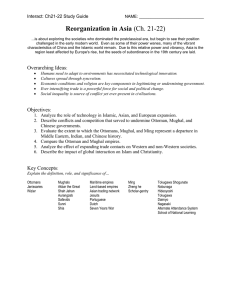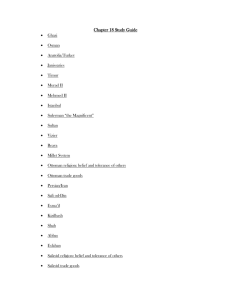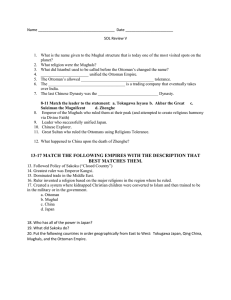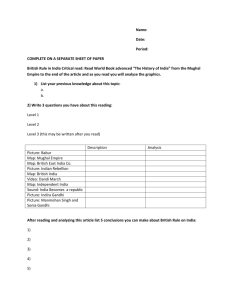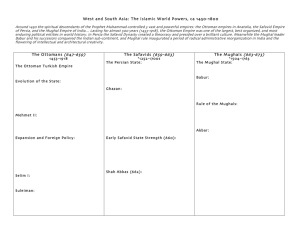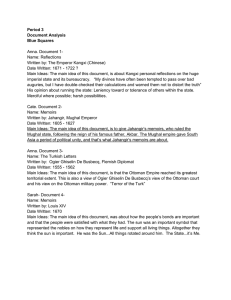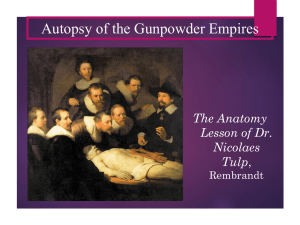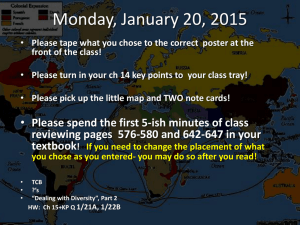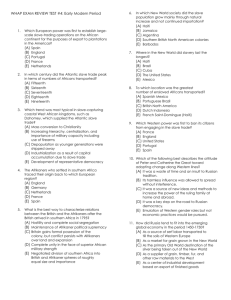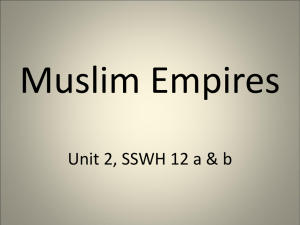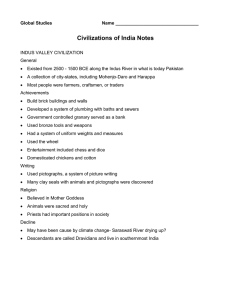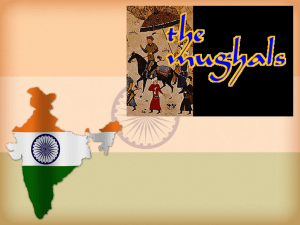1450-1750 Timelines are outside Ms. Bell's door
advertisement
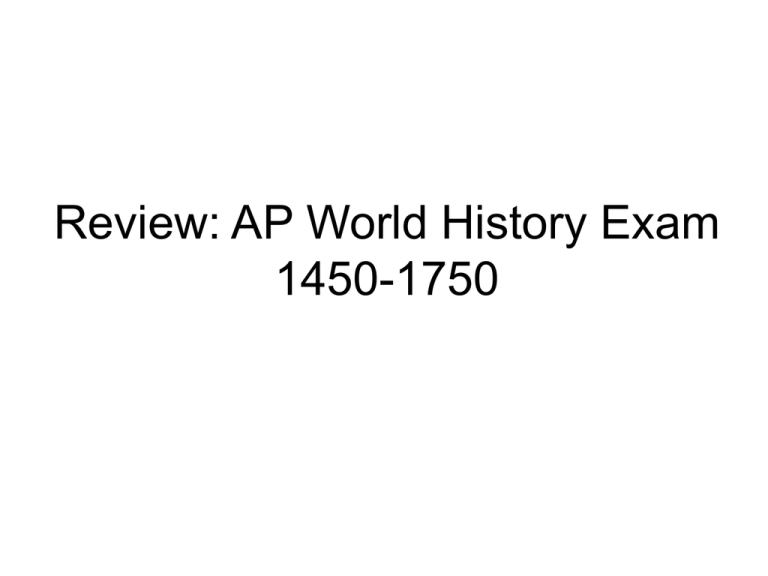
Review: AP World History Exam 1450-1750 Periodization •1453 Constantinople falls to the Ottomans •Portuguese start exploring •Colonies in the New World •Coercive Labor Systems •Ming closes doors and end expeditions in 1433 •Turks take over where Mongols left off in Russia and Southwest Asia •1750, Revolutions and Enlightenment •End of Gunpowder Empires •Beginning of Western Dominance Global interactions, Trade, and Technology • • • • Linking the Indian, Atlantic and Pacific Oceans New sea lanes established with exploration First encounters with Western Hemisphere Biological (Columbian) Exchange: plants, animals, disease, & human community • Global economy: agricultural goods, manufactured goods, luxury items reach distant lands Global interactions, Trade, and Technology • Technology: gunpowder, printing and maritime • Christianity and Islam spread • Indigenous people suffer and are exploited (Potosi) • Europeans flourish: colonies, open markets • Africa benefited from crops but devastated by slave trade Global interactions, Trade, and Technology • Colonies in the Americas, trading posts in Africa and Asia • Conquered Philippines and Indonesia but not China, India, Southwest Asia or Japan • Importance of European explorations Major Empires: Aztec, Ottoman, Inca, Ming, Qing (Manchu) Portugal, Spain, Russia, France, England, Mongol, Tokugawa, Mughal and Songhay SNAPSHOT on Absolutism and Gunpowder • Use France as a model, but know how England is different • Comparison of Ottomans & France • Mongols transform to other groups Major Empires: Aztec, Ottoman, Inca, Ming, Qing (Manchu) Portugal, Spain, Russia, France, England, Mongol, Tokugawa, Mughal and Songhay • Notes on Absolutism and Gunpowder Empires: Ottoman, Mughal, China, Japan • Gender: women gaining political roles among the elite classes (not China/Japan) Coercive Labor Systems Introduced in Columbian Exchange, Readings on Spanish Labor Systems, ex. Potosi Cultural and Intellectual Development • Exchange of arts: – Chinese, – Mughal – Ottoman contributions Mughal A Royal Mughal Court Thirst in night Syncretic Art Love on a Boat at Night Wang Yuanqi Ottoman Art • Calligraphy Carpets Tile and mosaic work Süleymaniye Mosque in Istanbul Sultan Ahmet Mosque in İstanbul Inside the Blue Mosque “Ahmediye Cami” Diverse Interpretations • The West has long term Environmental advantages like the horse, metallurgy, immunity to disease, supportive governments funding voyages, desire for wealth and trade, desire to convert to Christianity, naval technology, belief that change is good, competition is good and property can be owned.
